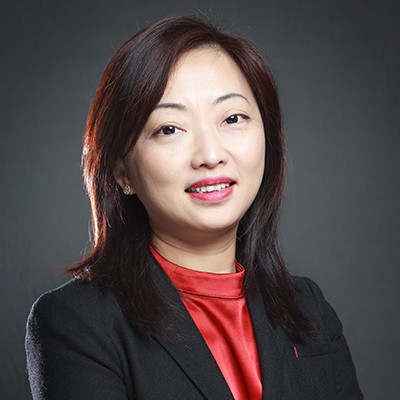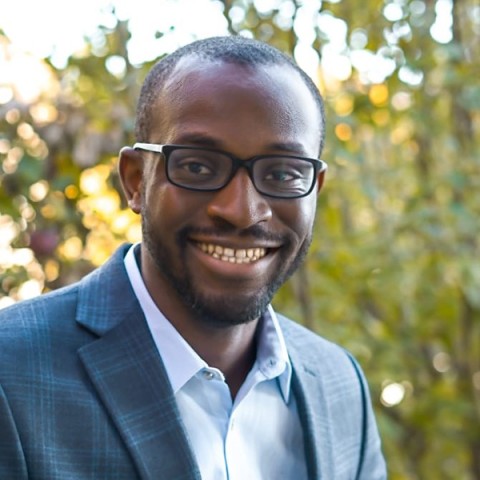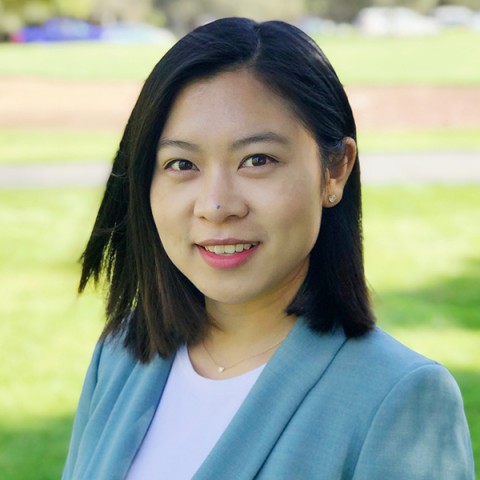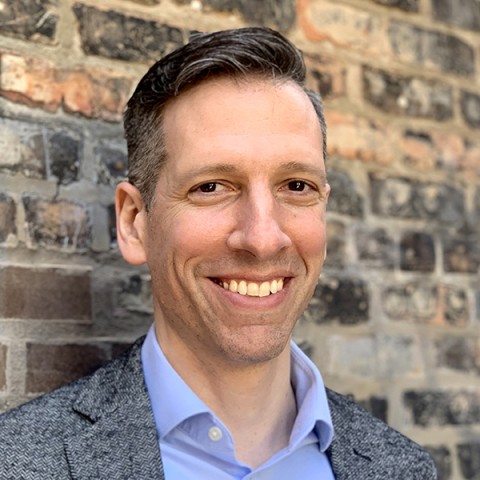In the pursuit of a more sustainable world, two resources have emerged as some of the most critical—clean electricity and potable water. To deliver both, researchers at the University of Chicago’s Pritzker School of Molecular Engineering (PME) are developing a suite of advanced technologies that can keep up with society’s demand, such as batteries large enough to power a small town and high-volume water filtration systems.
Those technologies were the subject of “A Conversation on Energy and Water Sustainability,” a panel held by Pritzker Molecular Engineering as part of the University of Chicago’s recent 2022 Alumni Weekend celebration.
The discussion covered technologies such as lithium-ion batteries and their limitations, current water filtration devices used in urban areas, and the need for more efficient carbon capture devices.
One theme that quickly emerged was the urgent need for a clean national electric grid, as Y. Shirley Meng, professor of molecular engineering and chief scientist of the Argonne Collaborative Center for Energy Storage Science (ACCESS), explained.

“It’s vitally important to clarify that batteries are not renewable,” Meng said. “A battery only stores what comes from the electrical grid, which, in many cases, is coal-powered. In Illinois, we’re lucky to have nuclear power, which doesn’t have a large carbon footprint, but elsewhere, say in California, roughly 70 percent of the electricity is generated from fossil fuels and only about 30 percent comes from renewable sources. Recognizing that is a fundamental part of this conversation.”
Meng reiterated that while the growing proliferation of electric vehicles is an essential and welcomed step in reducing carbon emissions, the electricity powering those vehicles must also be clean.
However, such a transition will require a substantial advancement in battery technology, on which Chibueze Amanchukwu, Neubauer Family Assistant Professor of Molecular Engineering, elaborated.
“The challenge in building a grid that runs entirely on solar and wind energy is the lack of energy-dense batteries,” Amanchukwu said.

“My lab is focused on exactly this, on developing cheap batteries that can last much longer than modern lithium-ion batteries. We are also focused on ways to capture CO2 and convert it into chemicals and products that we already need. That effort, and ultimately all of my work, is motivated by the desire to make this energy transition as equitable as possible.”
But producing enough batteries to power the national grid while also keeping up with the growing electric vehicle industry poses a challenge to the world’s limited sources of critical materials such as lithium and cobalt.
Currently, most of the world’s lithium is sourced from a few geologically-isolated locations, like the Lithium Triangle in South America, or Australia, both of which have limited output, presenting a national security risk to the United States. In response, the White House has made the supply chain for these critical minerals a priority.
Chong Liu, Neubauer Family Assistant Professor of Molecular Engineering, spoke about that looming material crunch and methods for drawing those critical elements from alternative sources.

“We are looking at the demand for lithium and other elements to increase five to 10 times in the next three decades, and that is just to supply the electric vehicle market,” Chong said. “Our lab uses a process called electrochemical intercalation to extract these elements from sources far more abundant, like geothermal brines, flowback water from oil wells, rejected desalination water, and seawater itself, all of which contain more lithium than we need. And our process is both economically and environmentally friendly.”
Seth Darling, interim chief science and technology officer for the Advanced Energy Technologies Directorate, and director of the Advanced Materials for Energy-Water Systems (AMEWS) Energy Frontier Research Center at partner Argonne National Laboratory, spoke on the pressing need for improved water filtration technology and the reevaluation of wastewater.

“While the total amount of water on Earth is not changing, supplies of fit-for-purpose water are under increasing threat because of climate change and unsustainable use,” Darling said. “In almost every instance of water shortage, we’re withdrawing water faster than it’s getting replaced. Joliet, Illinois, for example, is going to run out of water before 2030.”
Like many American towns, Joliet relies on underground aquifers, which are replenished slowly through natural processes like rainfall. Joliet has developed plans to pipe water from the city of Chicago system.
“So, what do we do?” Darling said, “We work on the science and technology that underlies ways to more efficiently and effectively clean water and increase supplies. That includes advanced, self-cleaning membranes and materials like the oleo sponge, which adsorbs and traps oil from spills. We’re also working on technologies to extract valuable materials from wastewater like nutrients that we need to grow food, and elements needed to build sustainable energy technologies.”
The panel concluded with a discussion of PME’s mission to address major societal issues through its four distinct themes, and how the school and Argonne National Laboratory work as partners to train the next generation of engineers.
“Our school was created to fulfill an original and imaginative vision,” said Matthew Tirrell, dean of PME, who moderated the panel. “That vision was of an engineering school aimed at achieving objectives for the good of society, and chief among them was how to help bring about a new era of sustainability through renewable energy, improved energy storage, and water recovery.”
In addition to “A Conversation on Energy and Water Sustainability,” PME faculty were present throughout Alumni Weekend activities, including “Science for Society,” a panel exploring how scientific innovation can solve important societal challenges like world hunger. Speakers included Junhong Chen, Crown Family Professor of Molecular Engineering and lead water strategist at Argonne National Laboratory, and Cathryn Nagler, Bunning Family Professor in the Biological Sciences Division and PME.